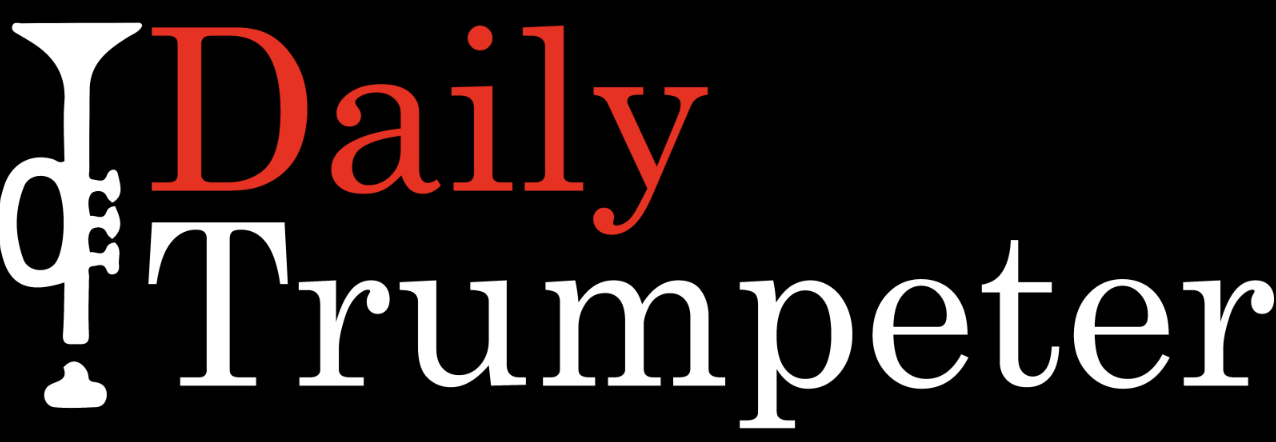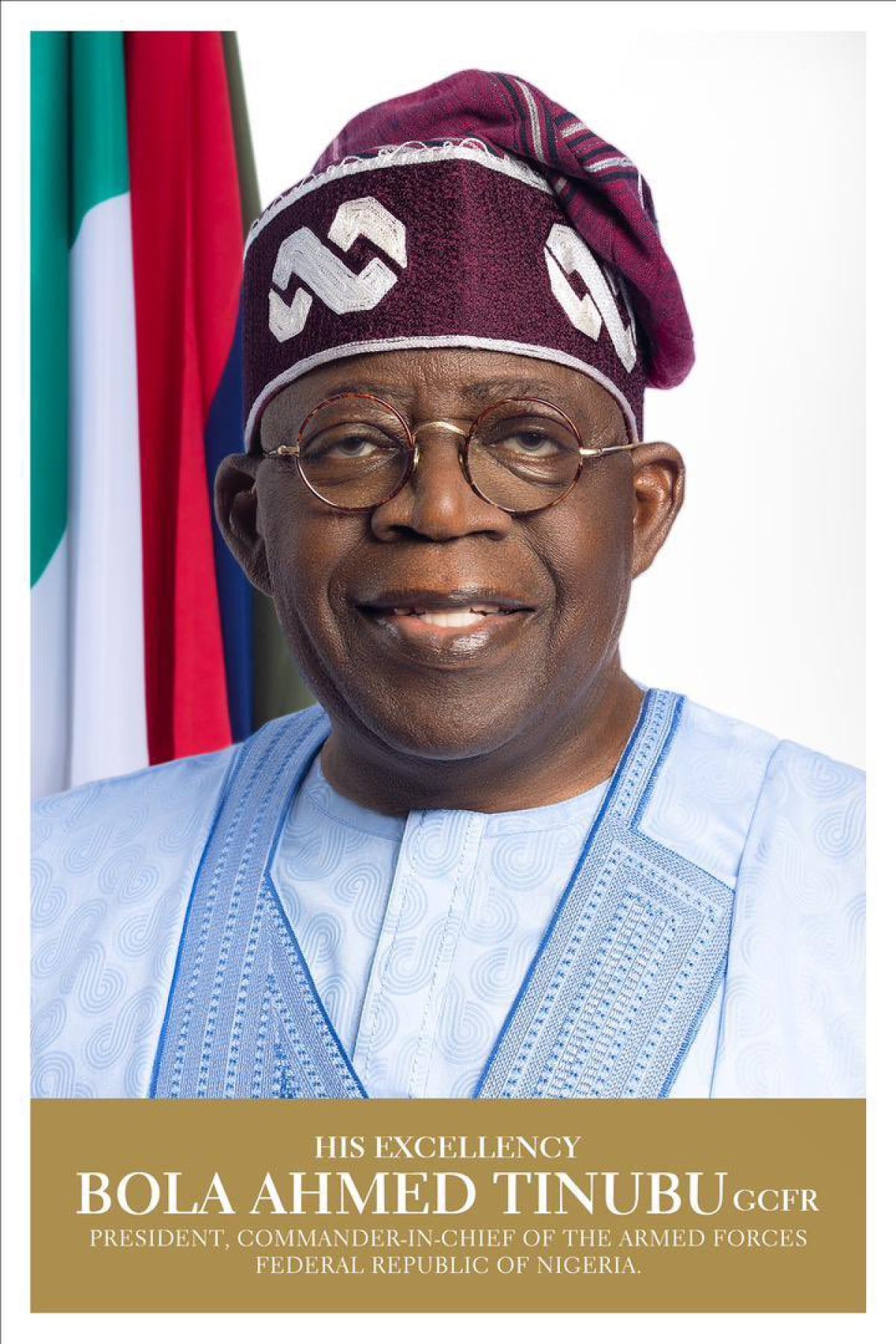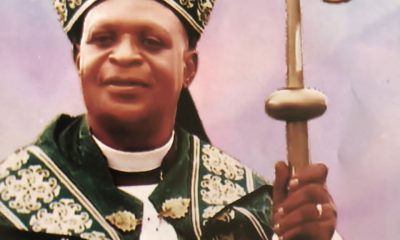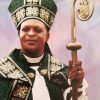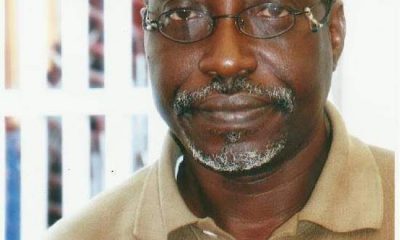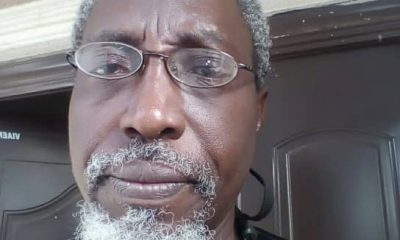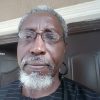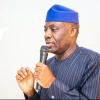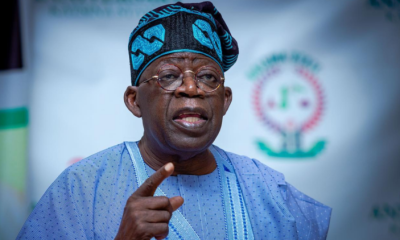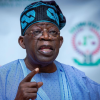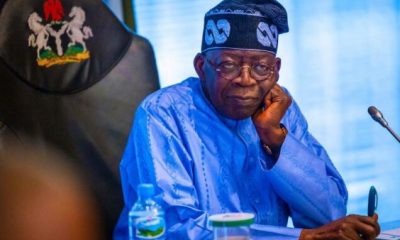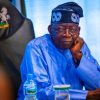Opinion
Comedy of controversial contradictions
By Dele Olaitan

“As it was in the beginning, so it is even now and so shall it be for ever and ever, world without end”. This biblical prayer-phrase lucidly captures the Nigerian situation. No matter how obstinate and unwilling the leopard is, it is a forgone conclusion that its spots cannot be changed. This is basically because the leopard is a spotted animal and would remain so as long as it is the leopard. From the beginning, there was no nation as such but a conglomerate of trading interests. Hence for Nigeria to actually see the light that could propel her ascension to great heights befitting a true giant, recourse must be made to the wrong beginning described as “the mistake of 1914”. All the woes and plagues holding the country down making her progress and growth to be mere cyclical movements can be traced to this ‘mistake. When sense of direction is lost, the best and wisest thing to do is to retrace one’s steps. Nigeria as a nation presently is a huge joke of a controversial contradiction which the whole world would continue to laugh at.
The first contradiction in the history of the nation remains her formation and coming into being. When the feudalistic and unproductive North was unleashed unto a prosperous and enterprising South in the name of amalgamation, the first goal of contradiction was scored. And everything since then is being tailored to make this contradictory culture of reaping without sowing a perpetual legacy. Unexpectedly and under inexplicable circumstances, amalgamation for exploitation tailored and tilted proportionately in favor of the northern feudal ruling class was attacked and described as a ‘mistake’ by the scion of that favored ruling class. The remark (though a painful and regrettable reaction to the humiliating brouhaha caused by the ‘Motion for independence’ incident of 1954), was a subtle nostalgic reference to abrupt end that the amalgamation put to the desire of jihadists to “dip the Quran into the ocean”. This was not only the second contradiction but an insidious act of rubbing salt to an injury. As a compensation to stifle further ‘attacks’ from the favored northern ruling class, another contradiction came in the poise of a sham exercise called national census whereby the arid and savannah north was said to be more populated than the densely forested south. This third contradiction paved way for perpetual political and economic gains to the north since the result of this head count became the main yardstick for sharing the nation’s resources including political power.
Taking the hypocrisy a little further, the colonial masters handed over political power to the same favored class who were averagely educated but “not ready for independence” (being genuinely afraid and apprehensive of being oppressed and manipulated by the better educated southern politicians). This political hegemony granted through the electoral process immensely compensated for the perceived “mistake of 1914” on the one hand and allowed for further uninhibited and unfettered exploitation of the country by the outgoing colonialists on the other. The fourth contradiction of harvesting without planting was thus effectively established. And this has become the modus operandi for governing Nigeria ever since – unlimited and uninhibited exploitation of the masses and expropriation of her resources.
The euphoria of independence which understandably encompassed varying degrees of positive expectations from Nigerians turned into a mirage. An unexplainable contradiction of political independence becoming a big burden of misery and suffering occurred just within a few years after the departure of the colonialists. Tell-tale marks of a promising giant becoming a dwarf with little or no prospects of meaningful growth and development became clearly discernible. People became disenchanted with the political leaders and many wished there was no independence or that the colonialists could come back. That was the fifth contradiction in the series – having independence but feeling shortchanged and nostalgic about colonialism.
Then came the era of the military with several notable contradictions. This period was not only of the locust in the history of Nigeria but most importantly of bloodletting, pogroms and unmitigated suffering. ‘Corrective’ regimes were being overthrown by ‘more corrective’ others with attendant bloodshed. In fact, the situation became as late Fela Kuti (the Afro beats maestro) aptly described it. He called it “Overtake don overtake overtake, odoo!” And ‘odoo’ means zero in Yoruba language. Fela was literally saying the military’s sojourn in power equaled zero hence a total misadventure. The ebullient and amiable warlord Chukwuemeka Odumegwu Ojukwu of defunct Biafra succinctly declared that “….the entry of the military into Nigeria’s politics did not serve its purpose…” This basically meant that the military’s incursion into politics in Nigeria was more or less counterproductive. The goals and objectives were not achieved in comparison to what was expected and happened elsewhere. Military ruling juntas were mostly known to be revolutionaries.
The first discernible contradiction in the coming of the military was the nature the first coup d’état took and manner of its execution. Clearly a closely guarded military mission until the D Day, the putsch which had national aspirations, goals and objectives as propellants ended up being executed with smears of ethnic sentiments and nepotism. Unlucky was the first name of most frontline politicians in the country except those from the coup plotters’ region of origin. So also was the fate of senior military officers not from the Eastern region from where majority of the coup plotters hailed. They were all murdered in cold blood. Need a military takeover of political power from civilians be this bloody? So, a military coup that was supposed to reunite and strengthen the nation for positive change turned into an exercise for achieving the exact opposite. The coup was a contradiction in this wise.
Second contradiction manifested by the military rulers was the introduction of ‘Unitary Federalism’. Abrogation of the existing four regions upon which Nigeria precariously hanged as a federation put paid to genuine oneness of the nation. With the introduction of Decree 34 of May, 1966, a coffin was already prepared for the burial of Nigeria’s bedridden federalism. However, Decree 14 of 27 May 1967 authoritatively and powerfully not only nailed that coffin but unceremoniously concluded its burial. And from then onward, agitations of marginalization and segregation became the order of the day. The center became much more powerful, richer and dominant more than the federating blocs or units combined. Yet this unheard of hence irrational and unorthodox arrangement is being called federalism. Reneging on the Aburi Accord of May 1967 was an unfortunate contradictory hypocrisy which became the last straw that led to Nigeria’s civil war.
Fourth contradiction manifested during the military rule was the unabashed squander maniac culture. Through and with this, Nigeria became ‘Big Brother’ to many African and black nations of the world on the pretext of “making Africa the center piece of Nigeria’s foreign policy”. The Federal military governments kept throwing money around and about to live this life. This prodigal attitude and lifestyle was given vent to by the declaration that “….money is not Nigeria’s problem but how to spend it….” This mindset clearly portray and confirm in very practical terms that Nigeria as a country is a fraud where only the interests of a certain class of her population matter. This insensitive and senseless ‘Big Brother’ culture persists till today despite the deprivations and sufferings of down trodden Nigerians. What contradiction could be bigger than maintaining a ‘Father Christmas’ posture outside the shores of the nation while there is abject poverty and unmitigated suffering at home?
Another noticeable contradiction characteristic of military rule in Nigeria was national plague that corruption became. Whereas the main or major plank of coming to power of many a military junta was waging war of extermination against corruption, almost all military regimes were more corrupt than their predecessors. Much more astounding were those ex rulers that allegedly became ‘born again democrats’ and had second shots at the presidency of the country. The mere fact of being a former military dictator in a nation of several million capable other citizens ought to and should morally debar one from becoming a democratically elected president if citizens really know what democracy is. But not so with Nigeria. Having Obasanjo (an ex General and Head of State) as elected president over and above Falae (an ex SGF and economist technocrat) is a very laughable contradiction. Likewise is the election of M Buhari (another ex-General and Head of State) as president against GE Jonathan (a university don, ex democratically elected governor, democratically elected Vice President and sitting President). In fact, late General Sanni Abacha (he who the cap fits) narrowly missed being elected president if not for death. What a gruesome irony and contradiction it could have been. Practical experience of two presidential terms each by these ex Generals should be enough to painfully teach Nigerians not to habitually return to their vomit.
In this new democratic dispensation aptly called or described as Fourth Republic, the first noticeable contradiction was the failure to discard undemocratic attitudes, culture and practices by elected officials. In the first instance, Nigerian political office holders cherish and love being treated as demi gods rather than as ‘elected servants’ who are to serve and are answerable to the people. But instead of making them accountable and answerable, the electorate are always eager to roll out the drums and eulogize political officials for provision of infrastructure and performance of duties they are voted and paid for. Secondly, military aides de camp still usually stand behind and follow Mr President all about unlike elsewhere. Without this shameless display of embarrassing ignorance and crude authority (especially at international fora), do the whole world not know who Commander In Chief of Nigeria’s armed forces is? Policemen provide similar services to almost all others in their various elected capacities. Is this not a carryover of military mentality and a culture contrary to democratic practices and tenets? It is not doubtful that these personnel can as well serve same purposes wearing mufti if they must so serve. Wives of most of these political office holders equally enjoy this deprecating services too. What is yet uncertain is if concubines and husbands of political office holders would join the queue soonest. After all, Nigeria is a nation of contradictions.
Next is the retirement of a class of military personnel termed ‘political officers’ that came about in year 2000. Purportedly carried out or done with the sole objective of ‘safeguarding democracy’, the retirement was a gale that unceremoniously and untimely swept away a large number of most military officers who were appointed into political offices during military rule. It was done under the misconception that they posed a potential threat to democratic rule given their experiences as political appointees which was considered as insalubrious to military professionalism. In short, the retirement classified them as once a politician, always a politician! The assumption thus was that they must be sacrificed in order that they do not impact the fledgling democratic rule negatively. Though the mass retirement was said to be and seen as a preemptive measure, it’s nonetheless arbitrary, high handed and undemocratic.
First is how justifiable is it to assume that holding political appointment while serving as a soldier is a prerequisite quality for being a potential coup plotter? Was Nzeogwu and his co plotters having political appointments prior to the January 1966 putsch? Were the duo of BS Dimka and G Orkar political appointees before their different coups d’etat? Did Obasanjo himself ever participated in any coup before becoming a military Head of State? Secondly, if morality should be brought into this as a consideration, was it right and proper or acceptable for a Commander In Chief who himself was a great beneficiary of military coups and military rule to unilaterally declare others as unfit and hence whimsically debar them from same benefit? Are the so ‘debarred officers’ not those more dominant and calling the shots at Nigeria’s political terrain presently?
Thirdly, was it possible for these officers to have refused such appointments while still serving? And lastly, is it not much more better, cost effective and professionally sound to allow the system take care of ‘political officers’ when discovered to be professionally unfit one way or the other? That is if our military is truly a professional establishment. Above all, can it be empirically proven and confirmed that the relatively long period of civil rule spanning about two decades and a half now is due to this ‘purge’? Or that there has not been several instances of pre military coup scenarios (coupled with unguarded, unwarranted and unprofessional warnings about temptations for coup by the military itself) in the country since 1999? Military coup and intervention might be a waiting game which we must continue to pray doesn’t occur. Else it will be worse than “back to square one”. Any democracy that cannot guarantee its own perpetuity is a sham. So also is any military that is in any way tempted by allures of politics is not professional enough and equally not worthy.
Another contradiction is the ‘bread and butter’ democratic governance where democracy is reduced to mundane and tangible issues like provision of health facilities, good roads and other infrastructure stylishly called ‘dividends’. If these are ‘dividends of democracy’, what are the shortcomings of military regimes then? Where do we put regular free and fair elections, accountability, rule of law etc.? Other contradictions include very blur distinction between the three arms of government where both the legislature and judiciary are undermined. Almost everything about governance revolves and centers upon the wishes of the Presidency just like in the military era. The ‘Eleventh Commandment’ (or ‘Do as pleases you if you can get away with it) is superior to and above all laws in Nigeria. In short, this is ‘Jankara Market democracy’ at play where impunity reigns without reins.
At the socio – economic fronts, one can say that the penchant of political leaders and elites for medical tourism overseas is a shameless and scandalous contradiction. This is because Nigeria’s medical professionals’ prowess is recognized worldwide with great levels of reputation and acceptance. “What they keep looking for in Sokoto is always there in the pockets of their sokoto”. Same applies to importation of food items and other agricultural produce given the rich mass agricultural land nature endowed the nation with. Most important of all is the shameless and insidious corruption that has enveloped the oil sector of the nation. The contradiction of someone with four wives who reduced himself to become a hapless and helpless cohabitant with another woman not even qualified to be a concubine is the height of self-degradation and criminal immolation. Others include having widespread religious worship centers than there are flourishing factories. So also are there more prosperous and multi-millionaire ‘Men of God’ than there are successful real time businessmen. We have been brainwashed to fastidiously believe in the miraculous power of prayers without the accompanying faith to bring it about. Hence we are quite prayerful without being faithful or ready to work. Though we know that it is righteousness that exalts a nation, yet almost all of us abhor ethics and morals – always wanting to cut corners or to operate above the laws if and where we can.
Other contradictions and hypocrisy abound but for considerations of time and space. Nigerians are at liberty to discern and add to the list presented here as they wish. It is however pertinent to caution that we learn to make haste very slowly in other that we reach our destinations safely. What is worthy of note is the fact that these contradictions are not mistakes. And if there are ones that are mistakes, they are deliberate mistakes. Or is it a mistake that Nigeria is a top producer of crude oil but is importing petroleum products? Is it a mistake that the nation has four refineries but none is functioning? Is it a mistake that rather than find solution to the comatose state the refineries are, we are made to pin our hopes in availability of fuel for local consumption on a private individual’s initiative where our four collective ones had failed? Nigerians live at the bank of a mighty river but are helplessly and unfortunately made to wash their hands with spittle, It is not a mistake that governments of a political party brought to power on a platform of promised ‘Change’ is cripplingly making the people unabashedly, regretfully and relentlessly clamor for change of ‘Changers’. “When and where the gods cannot help one……”
And on the issue of internal insecurity and ancillary matters, is it a mistake that our military forces known for exemplary and superlative performances outside the shores of Nigeria has continued to unsuccessfully grapple with this mission for more than a decade? And can anyone say that bustling and brisk business that kidnapping and banditry have become is also a mistake? Or that our security agencies are either not capable or do not have the capacity to tame the insecurity and criminality tempests? Of course, the answer is “No”. The mistake is in the evolution of Nigeria as a nation purposely to serve vested interests of certain powers. This is why real commitment, loyalty, intrinsic zeal driven by patriotism and nationalism is lacking. Not until there is a nation where there are true core values and dreams common to all and shared by all can we surmount collective or common challenges and problems. Let us painstakingly fix “the mistake of 1914” once and for all to evolve a new nation we all shall have stakes in.
Major Dele Olaitan (rtd) writes from Ilorin
